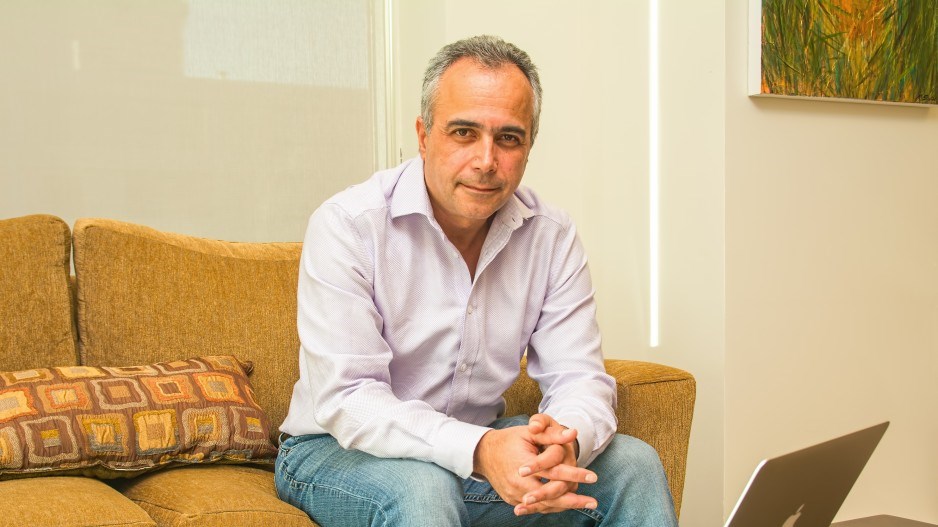Moe Kermani and his team at Vanedge Capital Partners Ltd. couldn’t help but bask in a feeling of validation late last month when scientists at Google LLC (Nasdaq:GOOGL) declared they had achieved “quantum supremacy.”
That is to say, those scientists used quantum computing to perform an incredibly complex computation in 200 seconds that would have otherwise taken a traditional computer 10,000 years.
Rival IBM Corp. (NYSE:IBM) disputes parts of the claim, but for Kermani, a managing partner at the Vancouver-based venture capital (VC) fund, it was proof their instincts were correct in leading a $1 million seed-funding round for Waterloo’s Quantum Benchmark Inc.
The Canadian firm had partnered with Google on the software used to achieve quantum supremacy, correcting errors made by the tech giant’s processor.
“The timing to when we will have an actual working, fully robust, fully error-corrected quantum computer – nobody can guess,” Kermani said. “Therefore from a VC perspective you need to play the long game; you need to have patience.”
For the venture capitalists, that meant relying on partners with PhDs in electrical engineering and physics, assembling a team featuring technical experts in the fund and making calls to scientists and engineers to confirm the investors’ instincts.
“We recognized that Quantum Benchmark was doing something that was very unique – it had a team that was the best in the world at what they were doing, and every single group that is building a gate-based quantum computer will need this technology,” Kermani said.
“From our perspective, we invested in something everybody needed rather than investing in a specific hardware implementation.”
While traditional computers use two bits – ones and zeros – to make calculations, quantum computers rely on qubits.
A qubit is capable of “superposition,” meaning it can be one and zero at the same time, which allows it to calculate all possible values in a single operation and open the doors to previously impossible computations.
Vanedge’s interest in quantum computing isn’t a one-off for the B.C. tech ecosystem.
Burnaby-based D-Wave Systems Inc. is a pioneer in the field, building what many consider to be the world’s first commercially viable quantum computer.
It has sold systems to Google, U.S. defence company Lockheed Martin Corp. (NYSE:LMT) and Los Alamos National Laboratory.
Meantime, Microsoft Corp. (Nasdaq:MSFT) announced earlier this month it was partnering with Vancouver-based 1QB Information Technologies Inc. (1QBit) for its new Azure Quantum offering.
Azure Quantum’s tools are aimed at making quantum computing more mainstream for developers and customers, and 1QBit, known for developing quantum software specializing in chemistry and finance, is the only software partner involved.
“We’ve had a long-standing relationship with Microsoft, and now they’ve moved from an R&D [research and development] focus to a commercialization focus,” said 1QBit CEO and co-founder Andrew Fursman, whose company earlier this year opened a lab at the University of Waterloo.
“This makes a great opportunity for us to partner with them on more commercialized projects.”
Fursman said Vancouver-based quantum companies like his are benefiting from being in the middle of a Venn diagram of ecosystems, with the West Coast of North America – home to Microsoft and Google – on one end and Central Canada on the other.
“What I like is we’ve been able to have a 1QBit presence in each of those regions that’s really allowing us to tap into the ecosystem,” he said.
Across the street from 1QBit’s Burrard Street headquarters sits Fujitsu Ltd.’s new office, where a team of 20 experts is using a quantum-inspired digital annealer to tackle commercial endeavours such as optimizing shipping routes at sea.
The annealer is a credit card-sized chip offering computing speeds exceeding those of classical computers while operating at room temperature, unlike large quantum computers that operate at low temperatures.
The $6 million investment in the Vancouver office marks the first time the world’s fourth-largest IT services provider has taken a core technology division outside of Japan.
Vancouver-based Fujitsu Intelligence Technology CEO Naoko Yoshizawa, meanwhile, sits on 1QBit’s board.
The province has also recognized Vancouver’s emergence as a quantum hub, announcing last month it would commit $17 million over five years to help launch the new Quantum Algorithms Institute at Simon Fraser University’s Surrey campus to train more experts in the field.
“As opposed to digging deep into a particular technology or trying to predict the future in some very specific way, instead I think that the development of a Quantum Algorithms Institute is very aligned with 1QBit’s view of the world,” Fursman said.
“Which is to say there are a whole bunch of exciting things happening at the hardware level and … it’s very hard to know which company, which institute or which technology is going to win that race. But what’s important is that as soon as there are new developments in that race, it’s going to provide incredible new opportunities to people who understand how to use that technology.”




